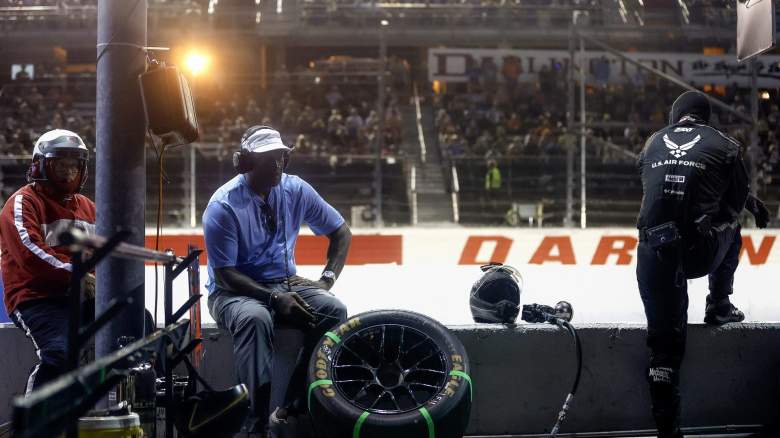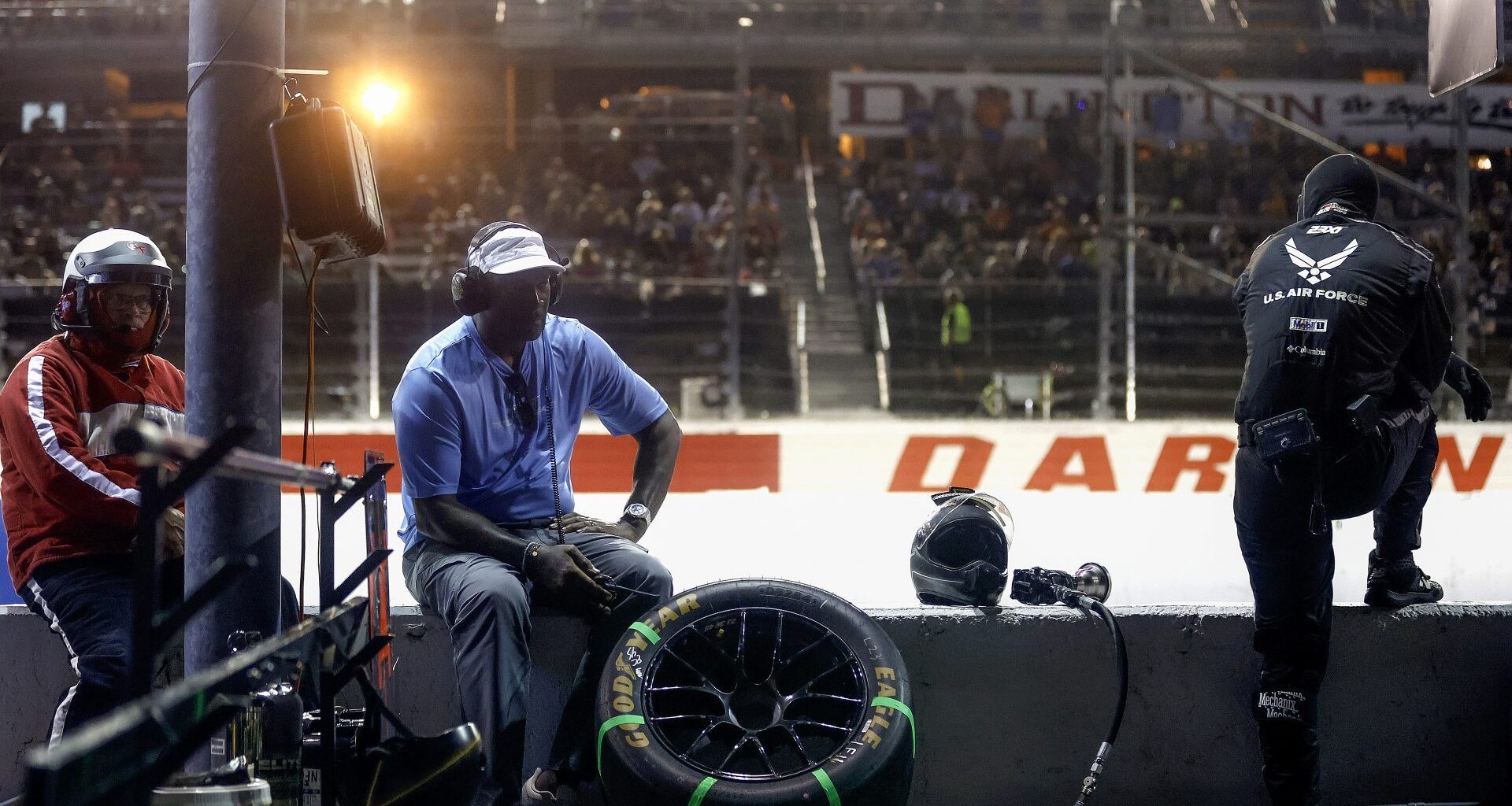
Getty Image
DARLINGTON, SOUTH CAROLINA – AUGUST 31: Michael Jordan, NBA Hall of Famer and co-owner of 23XI Racing listens to the race on pit road during the NASCAR Cup Series Cook Out Southern 500 at Darlington Raceway on August 31, 2025 in Darlington, South Carolina. (Photo by Logan Riely/Getty Images)
A tense day in Charlotte’s federal courthouse ended Thursday without a clear winner. After more than three hours of intense legal debate, U.S. District Judge Kenneth D. Bell wrapped up the much-anticipated NASCAR antitrust hearing without issuing a ruling, leaving both NASCAR and two of its race teams, 23XI Racing and Front Row Motorsports, waiting on a decision that could reshape the business of stock car racing.
Judge Bell now has to decide whether NASCAR’s business practices cross into monopoly territory. His upcoming ruling, expected within two weeks, will determine if the case heads to a high-stakes trial on December 1.
Monopoly Claims and NASCAR’s Defense
The suit initiated by 23XI Racing (Michael Jordan and Denny Hamlin are the co-owners) and Front Row Motorsports accuses NASCAR of maintaining a “100% monopoly” on stock car racing.
The teams assert that the use of the NASCAR charter system, which defines the competitors and the way the money is shared, is a non-competition agreement that also ensures the teams remain in need of the sanctioning body’s consent for their financial survival.
NASCAR’s lawyers fired back, accusing the teams of trying to form an illegal cartel by collectively refusing to sign new charter agreements for 2025. They defended the charter model, introduced in 2016, as a system that provides structure, stability, and guaranteed payouts for teams.
According to Matt Weaver of Motorsport.com, both sides filed motions for summary judgment. NASCAR asked the court to dismiss the teams’ monopoly claims, arguing they lack evidence and fall outside the legal time limits.
Meanwhile, 23XI and Front Row filed their own motion seeking to toss out NASCAR’s counterclaims, which accuse investor Curtis Polk of coercing other teams into rejecting charter agreements.
Judge Bell also heard detailed arguments over how to define the “market” for stock car racing and who truly holds the power, NASCAR or the teams.
23XI Racing and Front Row Motorsports Push Back
Adding to the drama, Jeff Gluck shared a strongly worded statement from attorney Jeffrey Kessler, who represents 23XI Racing and Front Row Motorsports. Kessler didn’t hold back, accusing NASCAR of using monopolistic and retaliatory tactics to dodge accountability in the dispute.
“My clients’ goal has always been to provide opportunities for growth and stability for every team, and they remain steadfast advocates for a fairer, stronger sport,” Kessler said. “Today’s hearing confirmed the facts of NASCAR’s monopolistic practices and showed NASCAR for who they are: retaliatory bullies who would rather focus on personal attacks and distract from the facts. My clients have never been more united and committed to ensuring a fair and competitive sport for all teams, partners, drivers, and fans. We’re going to trial to hold NASCAR accountable.”
Judge Bell’s main concern during the hearing was clear: What exactly is the market here? Is NASCAR the only one that can be considered a dominant force in stock car racing, or should we also consider the competition from IndyCar and Formula 1?
The plaintiffs maintain that NASCAR is the only one; however, the judge seemed to be skeptical about that by saying that he didn’t want to define the market too narrowly, and he didn’t give away much of a verdict.
What’s at Stake for the Future
At the heart of it all lies the issue of control, who gets to shape the sport’s financial and competitive future. The teams want permanent charters and a larger revenue share, while NASCAR wants to keep authority centralized.
A win for the teams could shake the sport’s foundation, redistributing millions and giving owners more leverage. But if NASCAR prevails, its grip tightens, possibly curbing future team unity.
With a December trial on the horizon, the entire racing world is watching. The outcome could redefine how NASCAR operates, not just in boardrooms, but on pit road and beyond.
Dogli Wilberforce is a sports writer who covers NASCAR, Formula 1 and IndyCar Series for Heavy Sports. With bylines at Total Apex Sports and Last Word on Sports, Wilberforce has built a reputation for delivering timely, engaging coverage that blends sharp analysis with accessible storytelling. Wilberforce has covered everything from major football transfers to fight-night drama, bringing readers the insight and context behind the headlines. More about Dogli Wilberforce
More Heavy on NASCAR
Loading more stories

